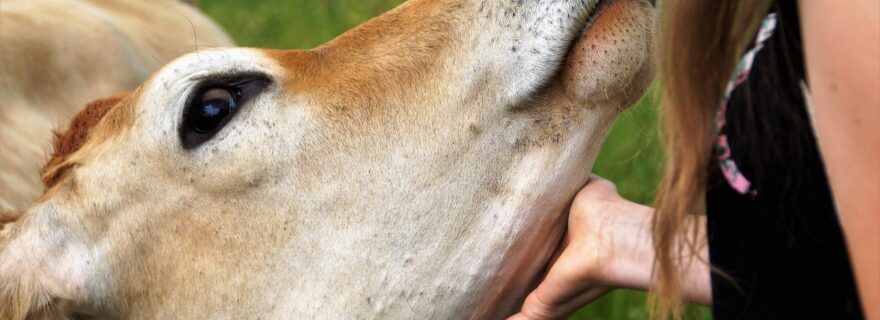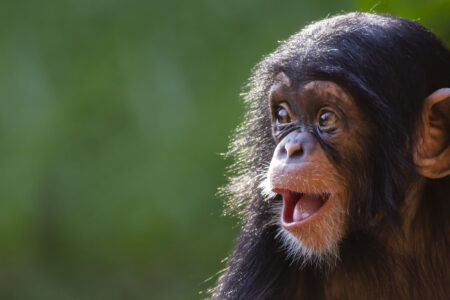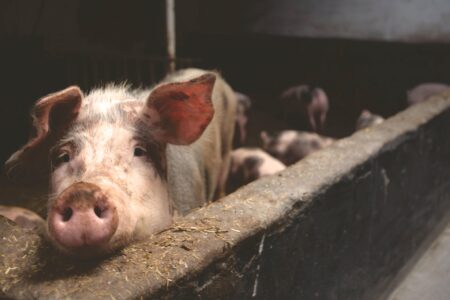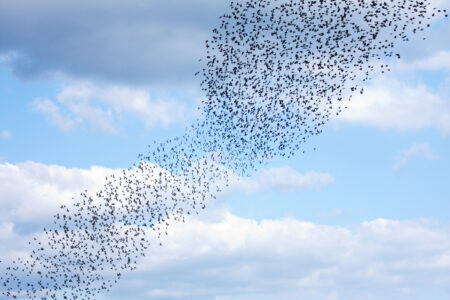Stroking, gently.
Whenever I'm at a petting farm (kinderboerderij), I try to get attention of the grazing cows. Sometimes – on my gentle call – they come to me as if they understand my good intentions. Can cows, in fact, perceive interactions with humans as something positive?
Cows as Pets
The authors of this study were interested in whether repetitive and gentle interactions with humans make calves less afraid of them. They went to a commercial farm in Germany, and for 14 days, they petted newborn calves for 3 minutes each day. They stroked each calf on the ventral neck and talked to them with a soft soothing voice. The researcher first waited for a calf to approach her while talking to it gently, and in one third of the interactions the calves approached the researchers themselves. The majority of the calves allowed themselves to be stroked and showed signs of enjoyment. In almost 40% of all interactions, the calves stretched their neck towards the researcher – a sign of relaxation. They also licked the researchers during the interactions and showed playful behavior such as jumping, which is a sign of positive emotions. The authors found it remarkable that calves played during the interactions, as it does not occur frequently among the cows. These observations confirm that cows do experience gentle interactions with a human as a positive experience.
Stroked calves become less afraid
But do these positive interactions make the calves less afraid of humans? When we experience something as positive or rewarding, we tend to approach it. For example, we would be drawn towards a playful and happy dog and would feel invited to have a chat with a smiling person. On the other hand, we avoid things and situations that we perceive as unpleasant or potentially painful. We would therefore intuitively step back when encountering a barking dog or a scary spider, which would be a sign of fear. Another person’s facial expression can also give us a clue about whether it's safe for us to interact with them. Indeed, we are more likely to be drawn towards someone smiling than someone who is looking daggers at us. Approaching positive and avoiding negative situations is absolutely essential for successful adaptation in the environment, and this behavior is not only observed in humans, but across the whole animal kingdom.
And cows are no exception. After 14 days of daily interactions with humans, the researchers tested whether the calves would avoid the researcher. The researcher individually approached the calf and extended her hand towards its nose. The distance to which the calf stepped back or drew in its head in response to this gesture was used as a measure of fearful avoidance. If the researcher could touch the calf’s nose, the avoidance distance was estimated as 0 cm. Not surprisingly, the calves that had previously been stroked showed less avoidance behavior than those who had not been petted. Cows show less fear towards humans who have treated them gently.
More than just economic gains
Calves that were petted were also found to gain more weight. Especially those who received more milk showed approximately 6.6% more daily weight gain than calves who did not experience gentle interactions with humans. For farmers, this is important because higher weight gain is commonly associated with higher milk yield in later life, which is an important economic aspect. But there is something else to it. It shows that cows are able to learn and recognize what is good or bad for them. And similarly to us, they will avoid situations and humans whom they perceive as potentially dangerous or unpleasant. Despite appearances, these passive grass-eaters will remember your soothing voice and kindness. And next time you gently call them at a petting farm they will come to you, trusting your kindness.





